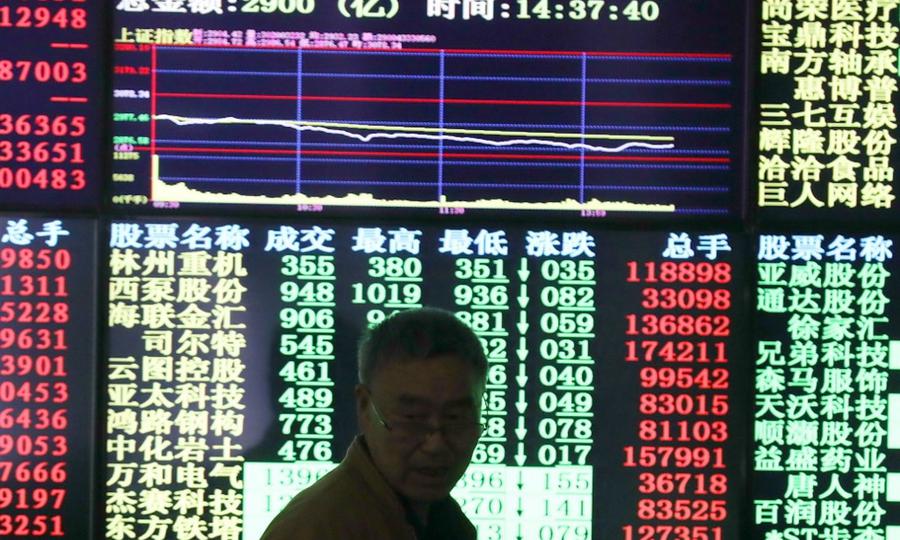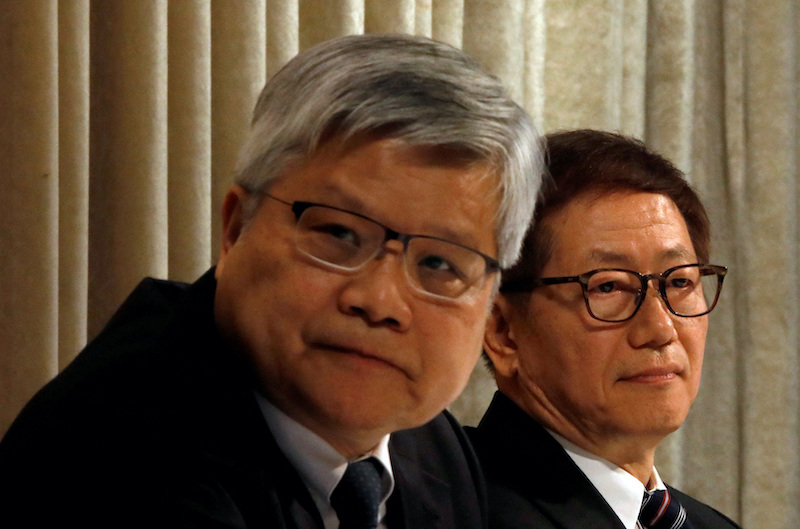Asian shares were mixed on Monday after China’s central bank unexpectedly trimmed key lending rates following data that showed the economy’s downturn deepened in July.
With retail sales and industrial output both rising less than expected, the People’s Bank of China (PBOC) trimmed its key one-year rate by 10 basis points to help prop up growth, which has been hit hard by Covid disruptions and a prolonged slump in the property sector.
The rate cut cushioned the blow to China stocks. The CSI300 index closed down 0.1% while the Shanghai Composite Index ended almost flat.
But some growth-oriented stocks gained from lower rates. Shares in new energy companies soared, with photovoltaic firms jumping 4.2%, and new energy vehicles adding 2.5%.
“The move reflects that policymakers were shocked by the July credit data, as well as a comprehensive deceleration in economic activities,” Kaiwen Wang, China strategist at Clocktower Group, said.
Data on Monday also showed that Chinese developers have gone into “survival mode” and sharply cut property investment in July while new construction starts suffered their biggest fall in nearly a decade.
ALSO SEE: China Slowdown Worsens, Prompting Unexpected Rate Cuts
In Hong Kong, the Hang Seng index dropped 0.7%, while the Hong Kong China Enterprises Index lost 0.6%.
Tech giants listed in Hong Kong slipped 1%, after five US-listed Chinese state-owned enterprises (SOEs) whose audits are under scrutiny by the US securities regulator said on Friday they would voluntarily delist from New York.
Some analysts said the delistings of SOEs was not totally unexpected, and they believed the delistings could potentially help pave the way for an audit deal.
Foreign investors also cut holdings of Chinese bonds for the sixth month in a row, official data showed on Monday. Foreign holdings of yuan bonds on China’s interbank market stood at 3.51 trillion yuan ($520 billion) at the end of July, the central bank’s Shanghai office said, down from 3.57 trillion yuan a month earlier.
MSCI Flat, Nikkei Up
MSCI’s broadest index of Asia-Pacific shares outside Japan was flat, having bounced 0.9% last week.
Japan’s Nikkei rose 1.1% as data showed the economy grew an annualised 2.2% in the second quarter, just a touch under estimates.
Japan’s economy rebounded at a slower-than-expected pace in the second quarter from a Covid-induced slump, highlighting uncertainty on whether consumption will grow enough to bolster a much-delayed, fragile recovery.
A revival in Japan, like many other economies, has been hobbled by the Ukraine war and surging prices of commodities even as rising consumption propped up growth in April-June.
“Consumption and capital expenditure will continue to drive growth in July-September. But momentum may not be that strong as rising inflation is cooling household spending,” Atsushi Takeda, chief economist at Itochu Economic Research Institute, said.
“While domestic demand may continue to expand, falling exports could put a brake on Japan’s recovery,” he said.
Eyes on US
Investors remain anxious to see if Wall Street can sustain its rally as hopes US inflation has peaked will be tested by likely hawkish commentary from the Federal Reserve this week.
“The FOMC Minutes on Wednesday should reinforce the hawkish tones from recent Fed speakers of being nowhere near being done on rates and inflation,” Tapas Strickland, a director of economics at NAB, warned.
Markets are still implying around a 50% chance the Fed will hike by 75 basis points in September and that rates will rise to around 3.5-3.75% by the end of the year.
Hopes for a soft economic landing will also get a health check from US retail sales data that are expected to show a sharp slowdown in spending in July.
Geopolitical risks remain high with a delegation of US lawmakers in Taiwan for a two-day trip.
Elsewhere in Asia, the KOSPI in South Korea edged up up 0.2%, while the ASX 200 in Sydney rose 0.45% and the Nifty 50 in India was 0.2% higher.
Gold Steady, Oil Drops Further
The pullback in the dollar provided something of a reprieve for gold which was holding around $1,794 an ounce, having gained 1% last week.
Oil prices dropped for a second session on Monday as weak China economic data triggered concerns about demand at the world’s largest crude importer while the head of the world’s top exporter, Saudi Aramco, said it was ready to ramp up output.
Brent crude futures fell $3, to $95.15 a barrel by 0918 GMT after settling 1.5% lower on Friday. US West Texas Intermediate crude was also down $3 – over 3% – to $89.09 a barrel, after a 2.4% drop in the previous session.
- Reuters with additional editing by Jim Pollard
ALSO SEE:
China Says US Stirring ‘Confrontation’ as Group Lands in Taiwan
Zero Covid Brings Guangdong Factory Hub to its Knees – RFA
























